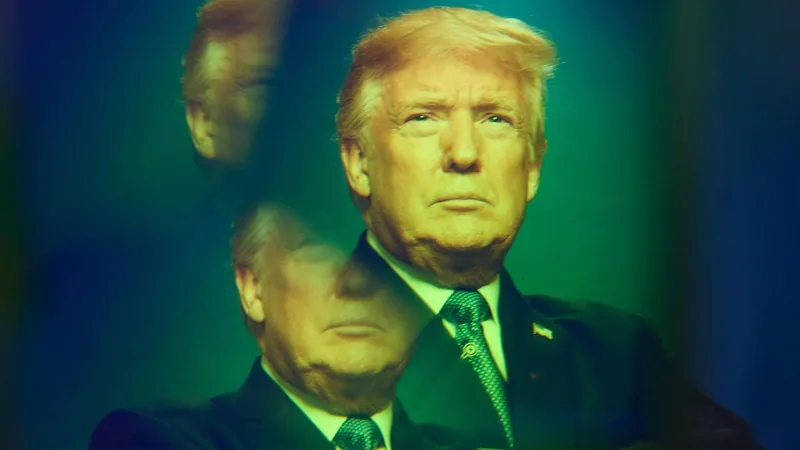
Wall Street Turns Cold on Trump: A Deteriorating Confidence!
2025-04-04
Author: Lok
In a significant shift, Wall Street is increasingly disillusioned with President Donald Trump, according to a new survey by Forbes conducted among 50 influential figures in the finance sector. These include billionaire investors and major institutional asset managers, many of whom initially supported Trump's economic vision upon his return to the White House.
The survey revealed stark dissatisfaction, with a staggering 72% of respondents considering Trump's economic plan ineffective. More than two-thirds voiced disapproval of his policies, and among those who had previously backed him, over a third have withdrawn their support. Alarmingly, 54% of these former supporters believe Trump is failing to execute his economic strategy effectively.
The respondents were also asked to rate specific facets of Trump’s economic policies. The results were telling: tariffs received a pitiful grade of 1.86 out of 5, with 27 investors giving it the lowest possible mark. The performance of the stock market under his administration was similarly derided, garnering a rating of just 1.96. Even his efforts towards deregulation only managed a lukewarm score of 3.08, indicating that even when he has tried to roll back rules, confidence remains shaky.
The repercussions of Trump’s new aggressive trade policies have sent ripples across the global economy. His administration has proposed "reciprocal tariffs," setting an initial 10% tariff on imports and implementing steeper penalties for major trading partners, leading to one of the most significant market sell-offs in recent years. Following the announcement, the U.S. stock market experienced its largest drop since the pandemic began, with the S&P 500 plummeting 4.8%, and the Nasdaq losing a catastrophic 6%. The U.S. dollar slipped against other major currencies, raising concerns about further economic instability.
Economists express deep concern about the long-term repercussions of these tariff hikes. Preston Caldwell, the chief U.S. economist for Morningstar, warned that prolonged tariffs could lead to a permanent decrease in U.S. GDP and living standards, reminiscent of the disastrous Smoot-Hawley Tariff Act of 1930, which played a significant role in the Great Depression.
As consumers brace for rising prices on essential goods, estimates suggest potential drops in GDP growth, with analysts at UBS forecasting growth to fall below 2% this year. Meanwhile, sectors relying heavily on Chinese and Vietnamese imports, especially retailers in the clothing industry, brace for turmoil amid escalating costs.
The sentiment among investors has shifted dramatically, with many expressing a loss of faith in Trump’s leadership. Chris Zaccarelli, Chief Investment Officer for Northlight Asset Management, voiced a common sentiment, noting the stark contrast to the optimism prevalent just months ago. Adam Crisafulli, founder of Vital Knowledge, reiterated this despair, stating, "Investor psychology has been destroyed.\"
In these turbulent times, Wall Street watches closely as the economic landscape shifts under Trump's leadership, questioning whether hope can be restored or if this marks a new era of uncertainty.


 Brasil (PT)
Brasil (PT)
 Canada (EN)
Canada (EN)
 Chile (ES)
Chile (ES)
 Česko (CS)
Česko (CS)
 대한민국 (KO)
대한민국 (KO)
 España (ES)
España (ES)
 France (FR)
France (FR)
 Hong Kong (EN)
Hong Kong (EN)
 Italia (IT)
Italia (IT)
 日本 (JA)
日本 (JA)
 Magyarország (HU)
Magyarország (HU)
 Norge (NO)
Norge (NO)
 Polska (PL)
Polska (PL)
 Schweiz (DE)
Schweiz (DE)
 Singapore (EN)
Singapore (EN)
 Sverige (SV)
Sverige (SV)
 Suomi (FI)
Suomi (FI)
 Türkiye (TR)
Türkiye (TR)
 الإمارات العربية المتحدة (AR)
الإمارات العربية المتحدة (AR)